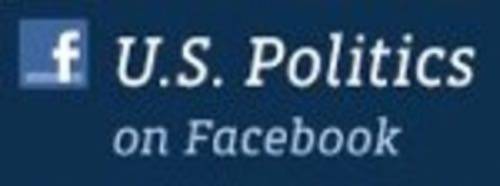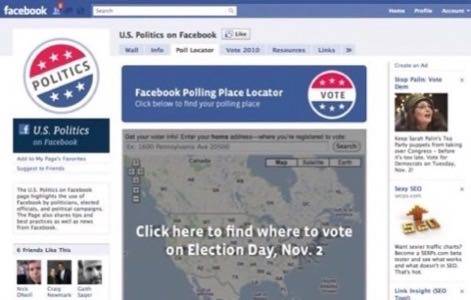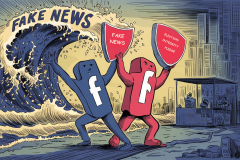Facebook, the largest online social network in the world, will put a call to hit the polls at the top of millions of users’ Facebook pages tomorrow and will attempt to help them find the nearest polling station.

Facebook told press today that the company will provide an official app on the site that locates the nearest polling place, badges that users can push out to their friends’ newsfeeds to show that they have voted and live streaming video coverage of early results starting at 4 p.m. Pacific. As one of the fastest-growing communication channels in history, Facebook could shake things up tomorrow on election day.
If the Facebook Newsfeed reaches a substantial portion of non-voters, that could have a political impact. According to the Pew Research Center for the People & the Press, typical turnout for midterm elections is around 40%. Or, as Michael Muskal wrote in the LA Times yesterday about all the attention the Tea Party receives, “The real majority in the midterm elections will be those who just skip it. Non-voters are younger, poorer, less educated and more liberal than likely voters.”

Non-voters are younger, poorer, less educated and more liberal than likely voters.
Could This Get More People to Vote?
Could that group be moved by Facebook to vote in greater numbers? That doesn’t seem impossible.
“This is a grand experiment for bringing traditional field organizing and Get Out The Vote efforts into the digital age,” says Michael Silberman, co-founder of EchoDitto, a digital agency founded by former Howard Dean campaign Internet geeks. EchoDitto is unaffiliated with Facebook but interested in the social network’s political work.
“Advocacy groups and political organizations have been trying to harness online social networks – Facebook especially – for years to mobilize voters and get them to the polls, but the required use of third party apps has made adoption too slow have a demonstrable impact.
“Organizing orthodoxy tells us that the best way to get someone to vote is through personal contact — ie. pressure from friends, family, and coworkers…
“…we can digitally surround a non-voter with his/her personal online network much faster and in a much louder way online then we ever could before through phone calls and door-knocks to encourage him/her to get to the polls.”
The digital advantage is that we can digitally surround a non-voter with his/her personal online network much faster and in a much louder way online then we ever could before through phone calls and door-knocks to encourage him/her to get to the polls. Better yet, we can surround that person online with people who matter — versus community members (in the best case) and out-of-town volunteers (in the worse case) who that potential voter may have never met.
What do you think; can Facebook move the needle in a midterm election? If it does, will it move things to the Left?
Twitter’s Plans
Twitter just announced its plans for election day as well, though they appear focused more on working with other more established media outlets than on producing original content and calls to action. That’s typical of Twitter, compared to Facebook.
CNN will be performing bulk analysis of sentiment across Tweets, but perhaps most interesting is the Washington Post’s plan. From the Twitter blog:
The @WashingtonPost will make news themselves tomorrow as the first news organization to sponsor a Promoted Trend on Twitter. Track #Election to get breaking news on race results, help monitor polling places and follow the Post’s election coverage, just one click from the Twitter home page.










